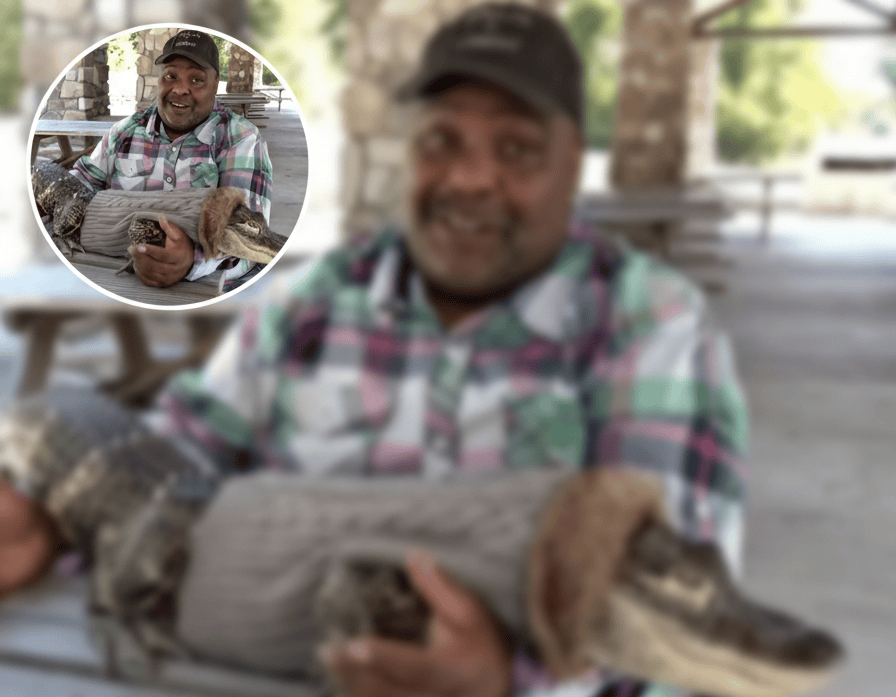A Pennsylvania Man Says He’s Been Taking His Emotional Support Alligator to Walmart for Years — Until a Customer Complaint Changed Everything
For years, shoppers in a Pennsylvania Walmart had grown accustomed to seeing one of the most unusual companions anyone could bring along for groceries. His name is Wally, and he isn’t a dog, a cat, or even a bird. Wally is a five-foot emotional support alligator who has been living with his owner, Joie Henney, for several years. To Henney, Wally isn’t just a pet. He is comfort, friendship, and emotional support during some of the darkest moments of his life. But recently, what had become a routine part of Henney’s days came to an end when Walmart told him he could no longer bring Wally inside after a customer filed a complaint.
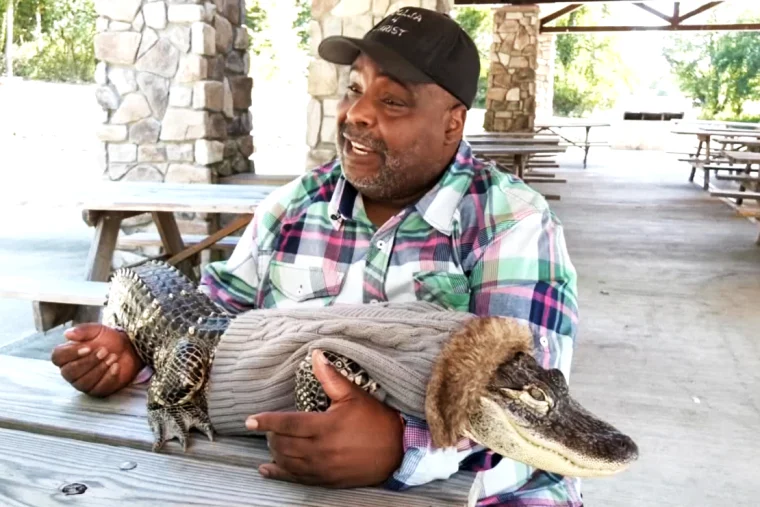
Henney has explained in interviews that Wally has never been aggressive toward people. In fact, he often insists that the gator is surprisingly gentle, spending most of his time lounging in his custom-made harness or being carried in Henney’s arms like a child. Henney says he bonded with Wally after a cancer diagnosis left him battling depression. The animal, despite its reputation as a fearsome predator, provided him a strange but very real sense of calm. Over time, the two became inseparable. Trips to Walmart became part of their daily rhythm, and Henney says employees had long known about Wally’s presence without issue.
The recent complaint, however, changed everything. According to Walmart, the company’s policy allows service animals but does not extend the same protection to emotional support animals, particularly exotic ones. After a customer expressed concern about safety, Henney and Wally were denied entry. For Henney, it was a painful moment because he says this routine was not just about shopping but also about keeping his mental health steady. He shared that being able to take Wally with him made it easier to get out of the house, interact with others, and feel less isolated.
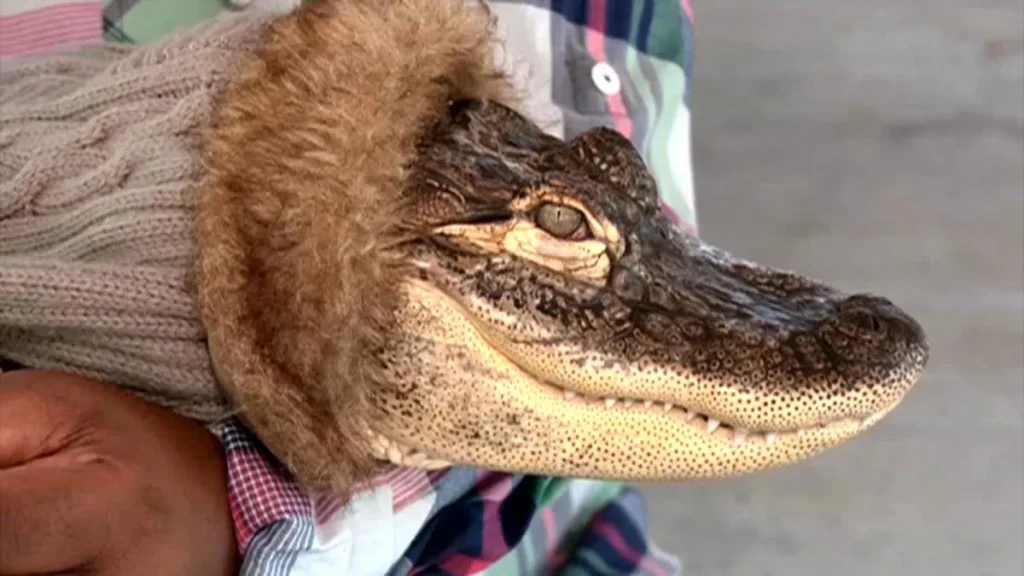
Wally himself has become something of a local celebrity. He has social media pages with thousands of followers and has been featured in news outlets across the country. Pictures show him wearing sweaters, being hugged by children, and even lying quietly beside Henney on park benches. Many people who have met the pair say their bond is undeniable, and for Henney, that bond is life-changing. He argues that Wally has done more for him emotionally than any treatment or therapy ever could. Yet despite the love and loyalty, there are limits to what public spaces are willing to allow.
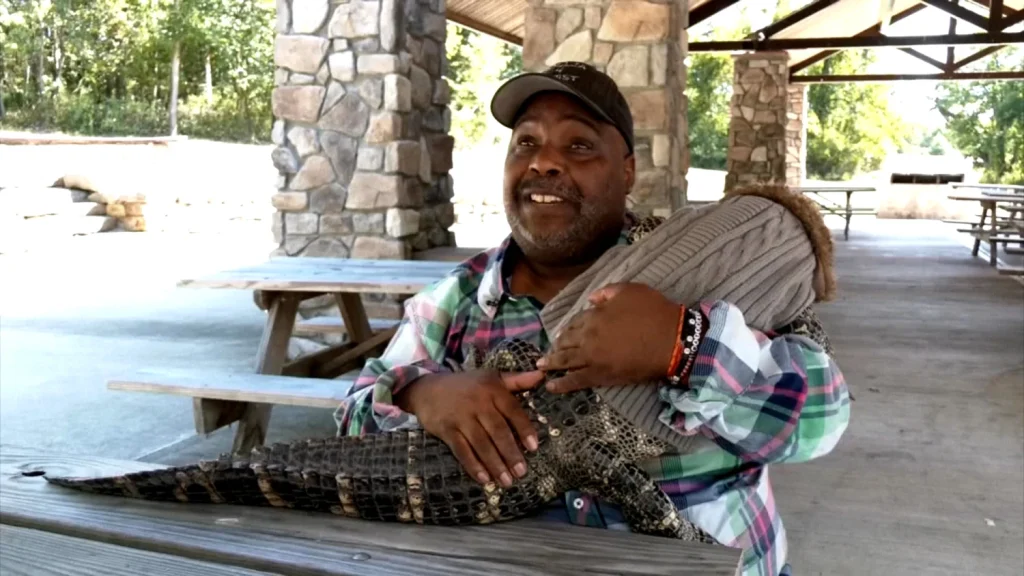
Reactions to the incident have been mixed. Some sympathize deeply with Henney, saying that people should not judge what brings comfort and healing to someone struggling. Others express concern, pointing out that even the calmest alligator is still a wild animal with natural instincts. Walmart’s stance reflects a middle ground: acknowledging Henney’s unique situation while prioritizing the safety and comfort of all customers.
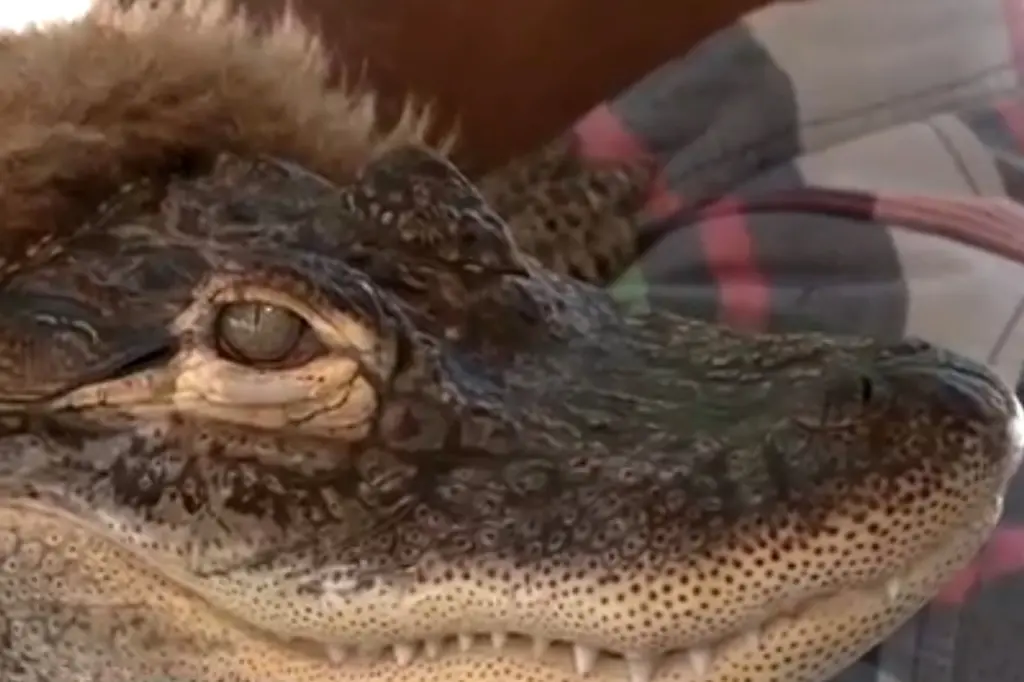
For now, Henney says he will continue caring for Wally at home and bringing him to public spaces where he is welcome. Though Walmart may be off-limits, he insists that his bond with Wally will not be broken. To him, this alligator is not a novelty or a joke but a companion that has carried him through illness, loss, and loneliness. Losing the ability to walk through Walmart together may feel like a small setback to some, but for Henney, it is a reminder of how much this unusual friendship means and how misunderstood it can be.
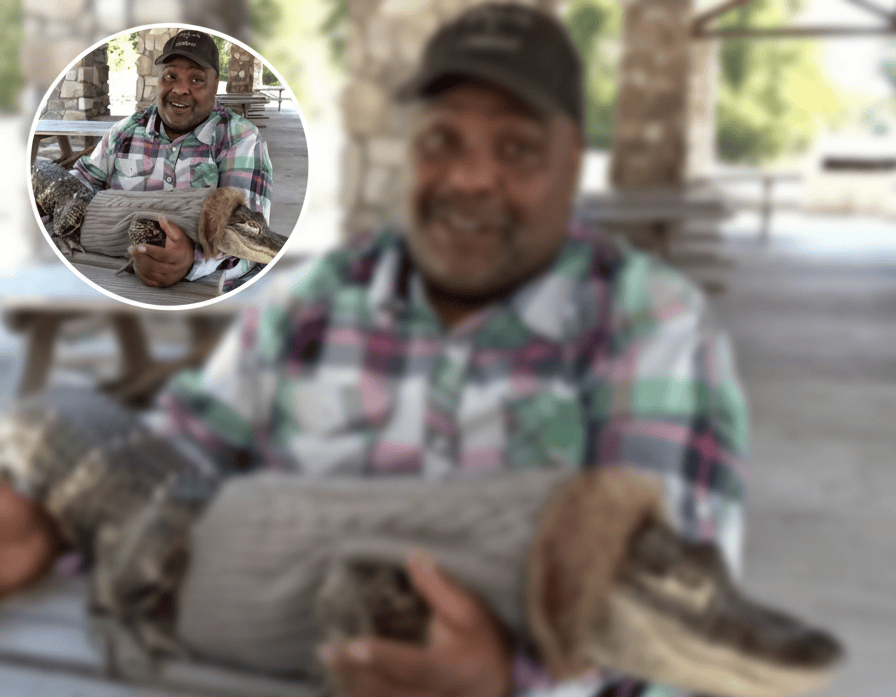
The story of Joie Henney and Wally is more than just about an alligator being denied entry to a store. It is about love, healing, and the unique ways people find strength when life takes an unexpected turn. Even though their trips to Walmart have come to an end, the bond between a man and his emotional support alligator continues, against all odds, as a testament to how comfort can come from the most unlikely of places.
